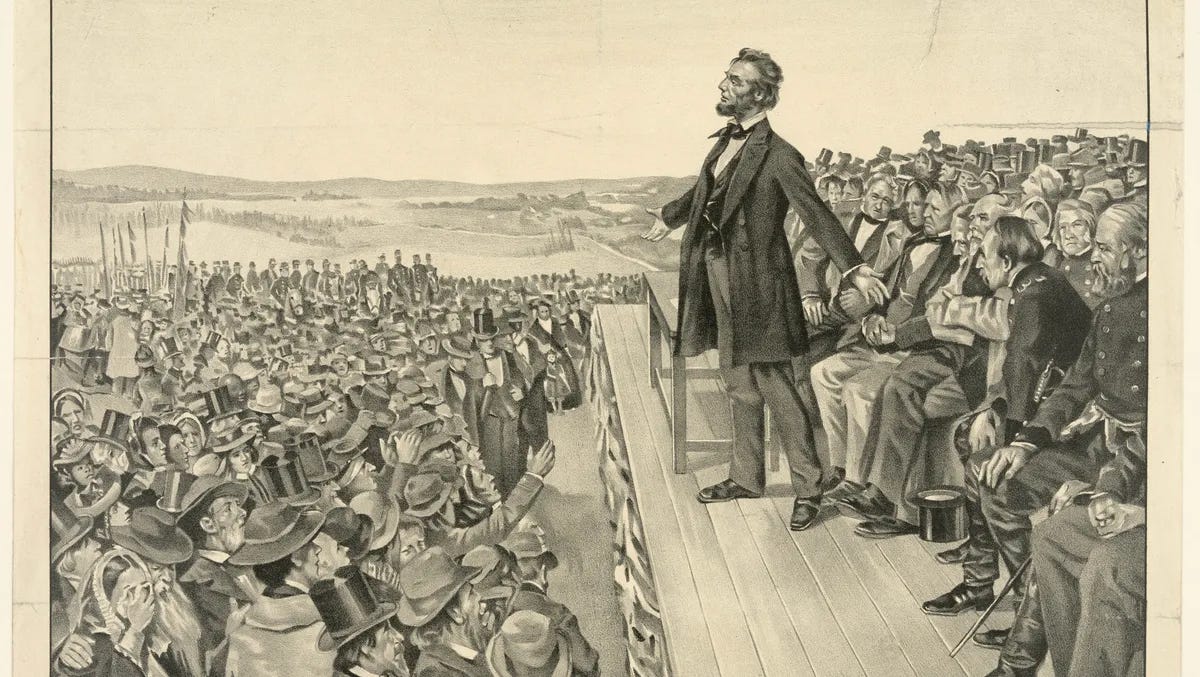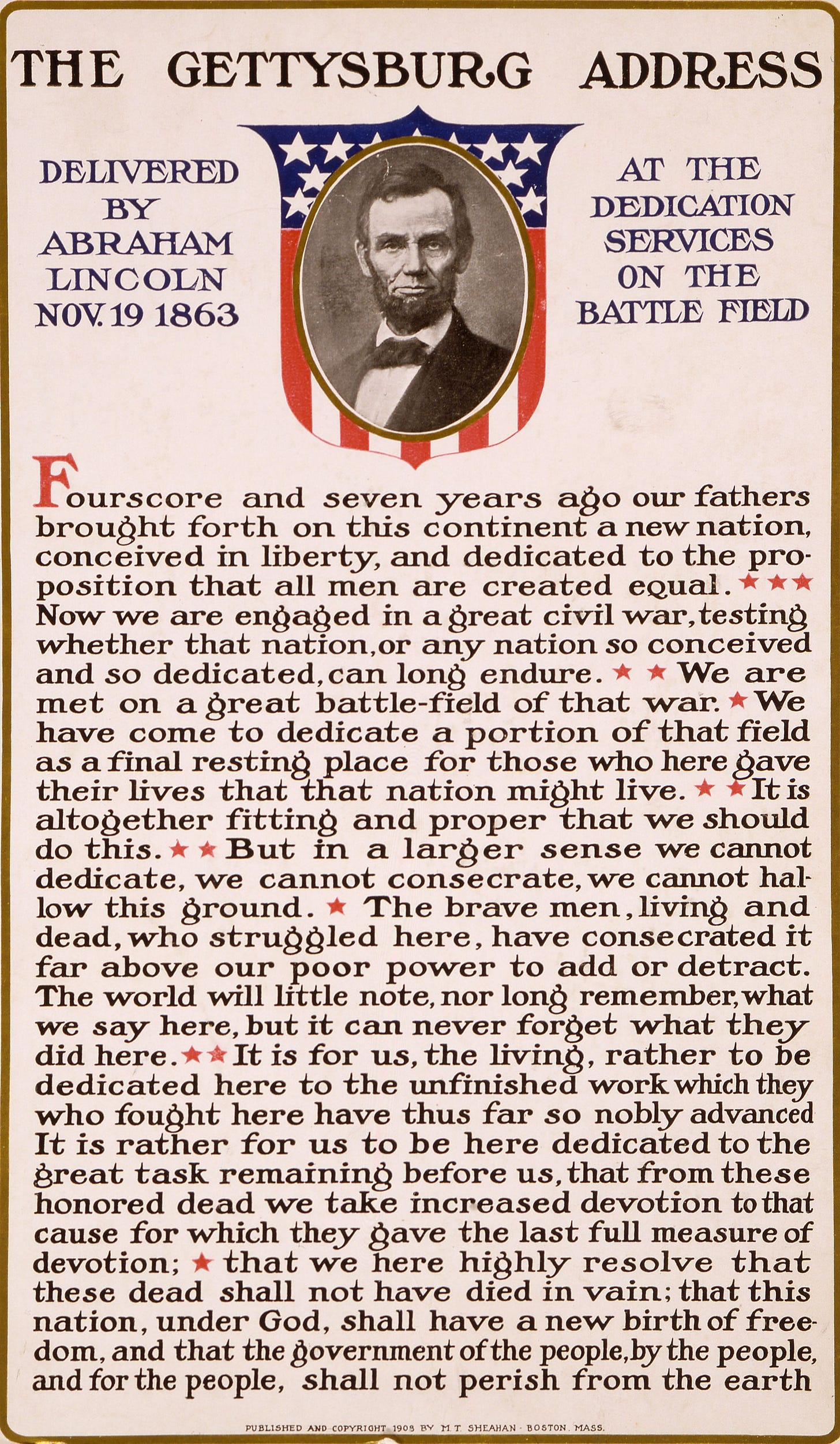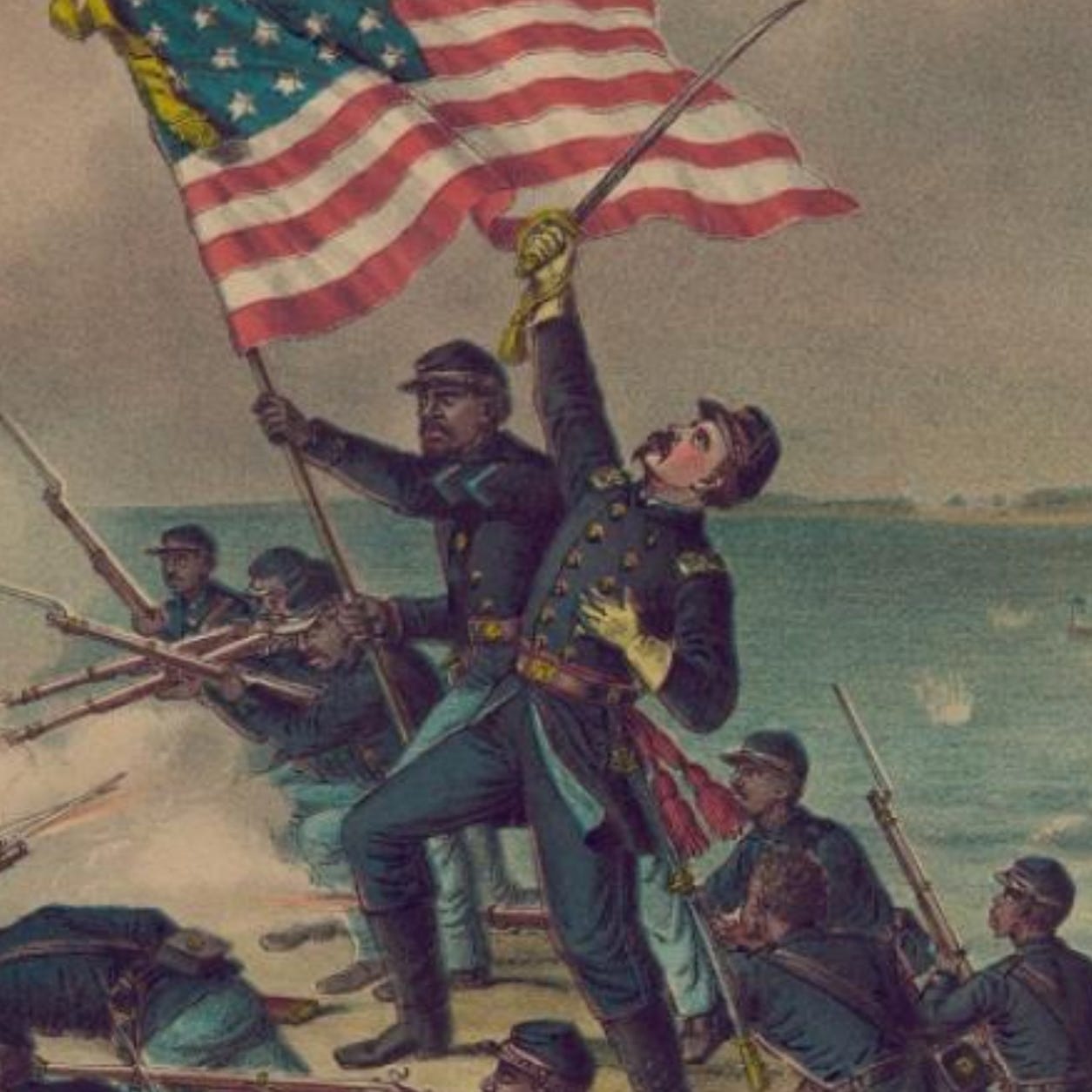"It Is Rather For Us To Be Here Dedicated To the Great Task Remaining Before Us"
A few thoughts on this anniversary of Lincoln's "Gettysburg Address"
On this day in 1863, President Abraham Lincoln delivered his “Gettysburg Address” as part of the dedication ceremony for a new soldier’s ceremony on the battlefield. Lincoln’s 272 words continue to resonate with the American people unlike any other speech delivered. In just a few minutes, Lincoln managed to reimagine the America experiment in democracy at one of the lowest points in the Civil War.
We tend to forget that this speech was intended as a rallying cry for a nation that had already witnessed three years of civil war with no end in sight. Four months earlier, on July 3, the United States gained a great battlefield victory at Gettysburg followed one day later by the announcement that Gen. Ulysses S. Grant had finally taken the Mississippi River town of Vicksburg.
The detritus of battle still littered the ground, along with other signs of the great conflagration, as crowds gathered that November day to hear what the president might say. What could he say to convince a war weary nation to see the conflict through to a successful conclusion?
By the end of 1863 the military gains of the summer seemed a distant memory. Grant had won a victory at Chattanooga, but colder temperatures and snow forced the two armies into winter encampments until spring. After beating back Confederates under the command of Robert E. Lee at Gettysburg, the Army of the Potomac found itself occupying roughly the same position in central Virginia that it had occupied at the beginning of the year.
In the first few months of 1864, the Union cause suffered additional military setbacks, including the sinking of the USS Housatonic by the CSS Hunley; Nathan Bedford Forrest’s defeat of William Sooy Smith’s cavalry raid; and the Confederate army’s victory at Olustee, Florida. Union advances on Dalton, Georgia were successfully repulsed by Confederates as well as Union raids on Richmond Finally, the capture of the Union garrison in Plymouth, North Carolina, all suggested that Confederate victory and independence was still possible.
On January 1, 1863, Lincoln signed the Emancipation Proclamation—a policy that remained highly controversial and unpopular. Many white Americans feared the consequences of a war that threatened to turn the war into a social revolution and free four million African Americans from bondage.
As Lincoln rose to speak he must have been aware that in a year’s time he would have to run for reelection. Would his audience and enough of their fellow citizens elect him for a second term? What would defeat mean to the cause of Union?
I’ve always thought that this historical context is crucial for appreciating Lincoln’s words. I suspect that most Americans have some sense of the desperation surrounding this speech when they read it and I suspect that this is why it continues to resonate and inspire.
Lincoln could have used his time to speak exclusively about the men who fell in battle and the importance of honoring their sacrifice, but he understood that such a narrow focus would be futile in a war that still could have ended in defeat. Instead, in one final breadth, the president shifted to his audience:
It is rather for us to be here dedicated to the great task remaining before us, that from these honored dead we take increased devotion to that cause for which they gave the last full measure of devotion, that we here highly resolve that these dead shall not have died in vain, that this nation, under God, shall have a new birth of freedom, and that government of the people, by the people, for the people, shall not perish from the earth.
The focus ultimately had to be on the living if the sacrifice that surrounded them in those shallow graves were to have any meaning or purpose.
Not since September 11, 2001 have I felt these words so viscerally. Now more than ever we must embrace Lincoln’s calling, in ways however small and seemingly insignificant, to ensure that our government “shall not perish from the earth.” I refuse to give in to cynicism and defeatism.
If Lincoln could find the strength to rally a nation at the brink of dissolution, we can and must do so today.







A fine column Kevin, one worth referencing in the future as we move forward into the next several years.
Thanks for this. First thing that hit me was this pithy thought: “In just a few minutes, Lincoln managed to reimagine the America experiment in democracy at one of the lowest points in the Civil War.” Zackly.
But I was late to realize what you were doing overall. It took until I saw this: “I refuse to give in to cynicism and defeatism. If Lincoln could find the strength to rally a nation at the brink of dissolution, we can and must do so today.”
What a great idea, to match the circumstances of the Gettysburg Address with the circumstances of America’s attempt to recover from the November 5 catastrophe.
Yesterday, some friends and I were talking about Lincoln‘s public-sentiment statement: “In this age, in this country, public sentiment is everything. With it, nothing can fail; without it, nothing can succeed.”
We think that principle is going to be crucial.